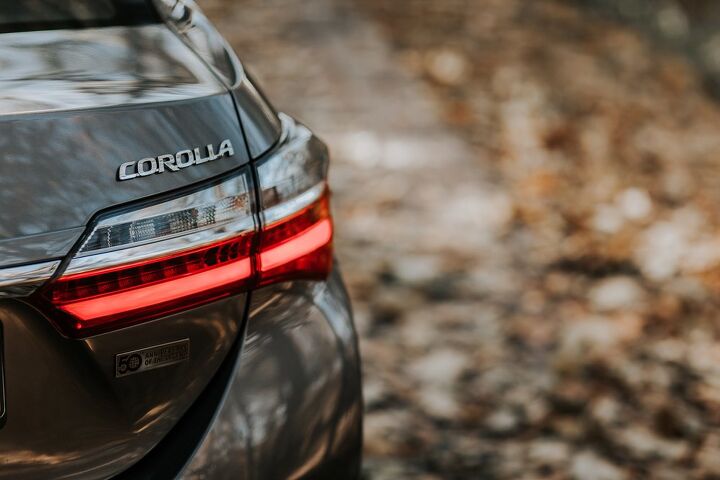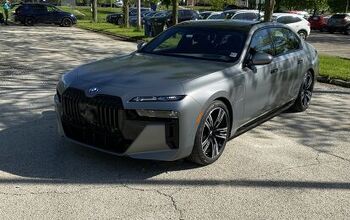These Are the Most Reliable Cars in Each Category, Says J.D. Power
Recent findings from J.D. Power show that after three years of ownership, vehicle dependability has diminished. Owners are reporting more problems compared to the previous year, with the industry average escalating to 190 problems per 100 vehicles (PP100). The disparity in problem rates between the initial 90 days and three years of ownership has surged, indicating a notable decrease in vehicle dependability over time.
Electrified Vehicles: A Mixed Bag
Owners of BEVs and PHEVs report more problems than those with gasoline and hybrid vehicles, with tire replacement being a notable issue for BEV owners.
Segment-by-Segment Breakdown
The study lists the most reliable vehicles across different categories, with Toyota Motor Corporation achieving the most segment awards. Here is an organized summary of the top-ranking models:
Compact Cars:
- Toyota Corolla
- Honda Civic
- Toyota Prius
Compact Premium Cars:
- Lexus IS
- BMW 4 Series
- BMW 3 Series
Midsize Cars:
- Toyota Camry
- Chevrolet Malibu
- Hyundai Sonata
Midsize Premium Cars:
- Lexus ES
Premium Sporty Cars:
- Porsche 718
- Chevrolet Corvette
Pickup and Van Segments:
Large Heavy Duty Pickups:
- Ford Super Duty
- GMC Sierra HD
- Chevrolet Silverado HD
Large Light Duty Pickups:
- Toyota Tundra
- GMC Sierra
- Chevrolet Silverado
Midsize Pickups:
- Toyota Tacoma
- Chevrolet Colorado
- Ford Ranger
Minivans:
- Kia Sedona
- Toyota Sienna
- Honda Odyssey
Standout Brands
Lexus is recognized as the most reliable brand overall, followed by Porsche and BMW for premium brands. In the mass market, Toyota ranks highest with Buick and Chevrolet in a close contest for reliability.
Methodology of the Study
The study reflects the experiences of over 30,000 owners of 2021 model-year vehicles after three years. It encompasses 184 problem areas across nine vehicle categories to provide a detailed analysis of long-term vehicle reliability.
This article was co-written using AI and was then heavily edited and optimized by our editorial team.
More by TTAC Staff
Latest Car Reviews
Read moreLatest Product Reviews
Read moreRecent Comments
- Fred No idea why someone would interested in buying this at the price point. I'm pro-ev but a quick search can pull-up a lot more value at lower costs. I like the Fiat design but I couldn't stomach paying $37k for limited range and a super tight back seat.
- 28-Cars-Later For the you-gotta-be-rich-to-afford-a-cheap-car crowd, Versa is the winner here IMO. Buy it new and pay the $300ish (?) note, but enjoy at least five years with relative reliability assuming historical average miles. Based on MY19, Manheim expects the "S" to be worth $5,975 in roughly five years with "retail" value being $12,650. Nissan and other second or third tier marques will give more on a new trade so assuming 20 OTD with incentives its a 12K/$2,400 depreciation over 5 years excluding interest and it probably could be kept another year or two before the Nissan in it starts to show. Mirage in this comparison is the new buy used on the cheap and run it till the wheels fall off. I'm loathe to compare it to either the Panther or 240 (since I don't believe it could physically last as long as either) but something in the vein of car you could repair yourself on the cheap which was originally intended for Third World conditions. Based on MY19, the ES hatch is worth $4K even with avg miles of 72,740 and "retail" value at $9,650. I personally see it as lot poison and could see savvy buyers making off with one of these near or below wholesale while Nissan is a staple of the subprime crowd and is much easier to finance. MC beings up an interesting contender in the used Chevy Bolt, whose wholesale is $12,050 for MY19 in LT trim with avg lower miles of 33,017. While this is very intriguing, financing is going to be the story here since Nissan or I imagine Mitsubishi could put buyers into half decent rates despite poor credit where a Bolt is "going to the street" and getting whatever high rate is being offered now. Assuming one can handle their own charging, Bolt does offer a lower maintenance cost and used I believe buyers have a higher chance of a white collar professional's commuter condition than what they will find in a used Nissan or Mitsu runabout. The risk to our theoretical buyer IMO is that the Bolt will straight up fail at some point in the future, either not take a charge or even turn on and for the higher wholesale entry point I say the Mitsu is a better choice since it likely won't completely fail and can very cheaply be replaced. Additional: For your kid/nephew/niece/any "middle class" child, I think Bolt is probably the better proposition here but I'd be out of the trade in 36 mos personally. For those truly on their own with no emergency support system, I'd shy away.
- Jbltg It's interesting to note that in the Japan domestic market, where cars are built to order and dealers maintain barely any stock, that there are many, many color options. Really good ones, but no one seems to bite. Most of the cars on the road there are the same boring colors that we have. Go figure.My pet peeve is black interiors. Too depressing, and shows every speck of dust and dirt.
- IBx1 Dealerships flood the market with grayscale cars to commodify them and drive down resale value. Green and yellow cars hold their value best because they cannot easily be replaced, but you can throw a rock and hit fifty shades of gray.
- SCE to AUX Appliances (household and vehicular) have limited color choices, that's why.But today, if you want a crazy color, just buy a plain one and get it wrapped.


































Comments
Join the conversation